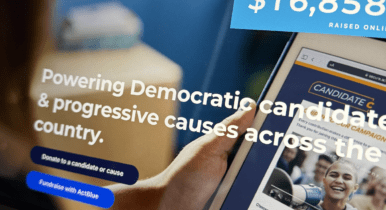Vote By Mail Is Good For Democracy And Good For Candidates
Vote by mail is one of the many stories of the 2020 election. According to the United States Election Project, more than 65 million people voted by mail, which approaches half of all votes counted so far. Increased VBM is a trend that campaigns and consultants should support for both ethical and strategic reasons.
Vote by mail is one of the many stories of the 2020 election. According to the United States Election Project, more than 65 million people voted by mail, which approaches half of all votes counted so far. Increased VBM is a trend that campaigns and consultants should support for both ethical and strategic reasons.
The most obvious reason to support mail-in voting is that it makes it easier for people to participate in our democratic process. Policymakers should make voting easier and more accessible while ensuring the integrity of those votes.
More fundamentally, our democracy relies on the consent of the governed. That consent depends on their faith in the system. The American people have always had a healthy distrust of politicians. To wit, Mark Twain famously said: “There is no distinctly native American criminal class except Congress.”
But we have also had faith that, if necessary, we could always throw the bums out through elections (contrary to popular belief, Twain apparently never said that politicians, like diapers, should be changed periodically).
A lot of that skepticism, and a lot of that faith, comes from what politicians say. What they say is often informed by those of us who work on campaigns (not as much as we’d like sometimes, but we do have a hand in it).
Attacks on our opponents decrease trust in them and help persuade voters to support our candidate instead. Attacks on democratic institutions decrease trust in those institutions and weaken our democracy. Fair, accurate, and relevant negative ads can help voters make better decisions about whom to support. Untrue, misleading, or irrelevant attacks can increase voter cynicism and hurt the process. The same is true of attacks on institutions.
There’s a lot our institutions can do better – the Pennsylvania legislature allowing mail-in ballots to be counted before polls close comes to mind. But just as with attacks on opponents, attacks on the system must be grounded in fact, must not be misleading, and must be relevant. If we keep telling voters the system is rigged, at some point they’re going to believe us and demand a new system — rather than just a new group of legislators.
There are also sound strategic reasons for supporting mail-in and early voting. As Politico reported it in its Morning Briefing on Nov. 7th:
PRESIDENT DONALD TRUMP’S decision to dump on absentee and mail-in balloting for months may come to be known as one of the worst strategic decisions in presidential campaign history. CLF, the House GOP super PAC, invested $5 million in a ballot chase program to get mail-in ballots from low-propensity Republican voters. TRUMP just decided to malign mail-in and absentee. [emphasis in original]
Voting by mail allows campaigns to do several things. As the House Republican super PAC saw, it’s a way to get voters who don’t often go to the polls to turnout. You can spend more time per voter through more contacts, which might get the reluctant to send in a ballot.
VBM also allows candidates to focus on key constituencies and issues sequentially. While keeping a traditional campaign going, a smart candidate could spend one week highlighting issues facing seniors, visiting senior living facilities, targeting mail, and digital ads at seniors, followed by a targeted VBM push.
If a state has a reliable, trusted, and well-functioning system the campaign should know how many seniors have voted after the push, and adjust accordingly. The campaign could then move to college students, single parents, and so on. Rather than have to talk to all of the voters, all of the time, and get them to all show up at once on Election Day, campaigns could spread out their efforts and increase their effectiveness.
But this strategic advance only works if voters trust the VBM process. Voters who mail in their ballots need to trust their votes will be counted. That trust can be fostered by our actions. Our candidates can promote faith in our electoral system while promoting their own campaigns. Attacks on our electoral system decrease trust in democracy and hurt our candidates.
We all got into politics because we believed in both an idea and a political system that allows us to advocate for that idea. Those of us lucky enough to make a living as advocates – doing the work of democracy – have a special obligation to that democracy. Promoting VBM offers one of their rare chances to do what’s both best for our candidate and best for our democratic system at the same time.
Peter Loge is the director of the Project on Ethics in Political Communication, an associate professor in the School of Media and Public Affairs at The George Washington University and a strategic consultant. Over the past 25+ years he has led and advised a range of organizations and campaigns, and has served in senior staff positions in Congress and the Obama administration. Loge is on Twitter at @ploge


